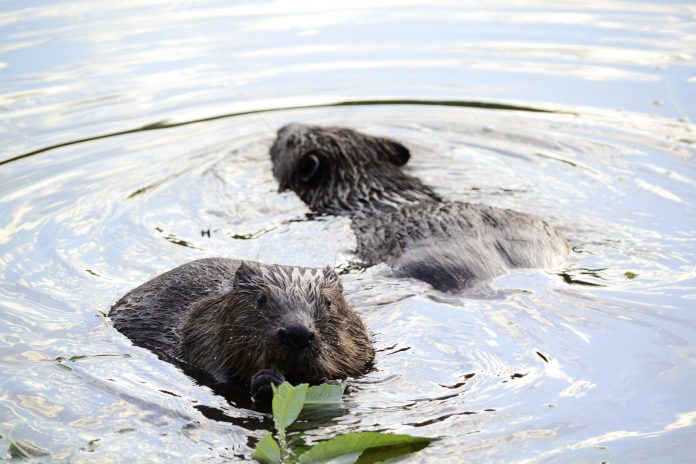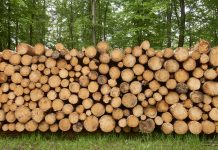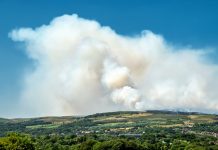Wild beavers are living naturally on Devon’s River Otter for the first time in 400 years after a five-year trial showed their dam-building activities were good for people and wildlife
Beavers were previously hunted to extinction in the UK more than 400 years ago because people wanted their meat, fur and castoreum, a secretion that was used in medicine and perfumes.
In 2013 a family of beavers was found to be living on the River Otter in Devon. Where they came from is a mystery and at first, they were threatened with eviction.
However, a five-year trial led by the Devon Wildlife Trust (DWT) Charity, supported by local people, monitored their impact on the environment and after four adults and a kit were captured, tested and found to be clear of disease in 2015, they were released back on to the river.
In 2016, a new pair of beavers were released into the area to improve the population’s genetic diversity, before a further two beavers were released into different parts of the river in May 2019. Now there are at least 50 adults and kits on the river – and they are there to stay.
The beavers benefit
The five-year River Otter Beaver Project measured the impact of the animals on the local landscape, economy, communities and wildlife. A report published earlier this year by the University of Exeter, showed the animals provide a range of benefits, including reducing the risk of downstream flooding, wildlife tourism, improved water quality, carbon storage and benefiting other wildlife including fish, water voles and birds.
The presence of the beavers was met with some opposition from landowners as their landscape was slightly altered, however, these problems were easily solved with active management.
Richard Brazier, from the University of Exeter research team, said: “We show that any conflicts can be managed swiftly and efficiently and also that the benefits of beavers far outweigh any costs associated with their management.”
As a result of the proven benefits, the government announced on 6 August that the beavers would be allowed to stay in Devon permanently, giving them the right to live, roam and expand their range naturally. This ‘pioneering’ decision is the first legally sanctioned reintroduction of an extinct native mammal to England.
Director of conservation at DWT, Peter Burgess, said: “This is the most ground-breaking government decision for England’s wildlife for a generation. Beavers are nature’s engineers and have the unrivalled ability to breathe new life into our rivers.”
Controlling beavers elsewhere
Attention is now being placed on creating a national strategy for releasing and managing beavers in England, amid reports that beavers are not only living in Devon but are already living wild in rivers elsewhere. As well as many being introduced into enclosures in the countryside.
There are generally high levels of public support for reintroducing beavers to other parts of England, and some landowners are keen to use the landscape to help ‘rewild’ parts of the countryside to help nature. However, farmers have raised concerns that they can damage farmland.
Over a decade ago, beavers were reintroduced to Scotland, and last year they were given protected status. However, farming leaders complained about the dams flooding valuable agricultural land.
This resulted in Scottish Natural Heritage granting licences to cull around a fifth of the beaver population.
The question could now be asked, should we think about reintroducing natural predators to control the numbers of beavers (as well as deer and wild boar). Reintroducing lynx and wolves could be an answer.











